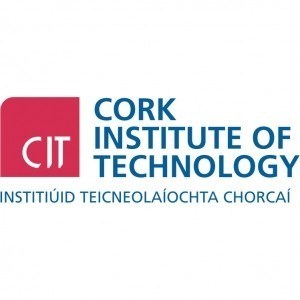Photos of university / #heriotwattuni
Construction Project Management at Heriot-Watt University is a comprehensive and industry-focused program designed to equip students with the essential skills and knowledge required to lead and manage construction projects successfully. This programme combines theoretical understanding with practical application, ensuring graduates are well-prepared to meet the complex demands of the construction industry in a global context. Throughout the course, students will explore core topics such as project planning and control, construction technology, contract management, sustainability, risk management, and health and safety practices. Emphasis is placed on developing strong leadership, communication, and problem-solving abilities, which are vital for effective project delivery.
The curriculum integrates advanced construction management software tools and techniques, enabling students to gain hands-on experience in project scheduling, cost estimation, and resource management. Collaborative projects and industry placements are embedded within the programme to provide real-world insights and foster professional networks. Heriot-Watt’s close links with industry partners and construction firms ensure that the programme remains aligned with current sector needs, providing students with opportunities for internships and practical projects that enhance employability.
Graduates of the Construction Project Management program are prepared to pursue careers in various sectors of the construction industry, including project management, consultancy, and site management. They are equipped to work in multidisciplinary teams, coordinate complex projects, and implement innovative solutions to meet sustainability and efficiency goals. The programme also provides a strong foundation for those interested in pursuing further research or specialized professional qualifications within the construction field. With excellent facilities, experienced faculty, and a focus on practical learning, Heriot-Watt University’s Construction Project Management programme prepares students to become successful professionals, capable of leading construction projects around the world with confidence and expertise.
Construction Project Management at Heriot-Watt University offers a comprehensive curriculum designed to equip students with the essential skills and knowledge required to lead and manage construction projects effectively. The program encompasses a wide range of topics, including project planning, cost estimation, procurement, risk management, and sustainable construction practices. Students will gain a solid understanding of construction technologies, legal and contractual frameworks, and the use of industry-standard software tools. The course is delivered through a blend of lectures, practical workshops, group projects, and site visits, providing both theoretical insights and real-world experience. Emphasis is placed on developing strong leadership, communication, and problem-solving abilities to prepare graduates for dynamic roles within the construction industry. The program also explores contemporary issues such as innovation, digital construction, and environmental sustainability, ensuring that students are well-prepared to meet current and future industry challenges. With access to Heriot-Watt’s state-of-the-art facilities and close links with industry partners, students have opportunities for internships and practical placements. Graduates of the Construction Project Management program are highly valued across the construction sector worldwide, ready to take on managerial and project leadership roles in diverse professional settings. The program aims to foster lifelong learning and professional development, supporting students in obtaining relevant certifications and memberships such as CIOB, RICS, or similar industry bodies. Whether you aspire to work on large-scale infrastructure projects, commercial developments, or innovative construction initiatives, this program provides the foundation to develop your career path in construction management at an international level.
General Entry Requirements typically include a relevant academic background such as a good high school diploma or equivalent qualifications, with specific GCSE or A-level subjects like Mathematics and relevant sciences. For international students, proof of English language proficiency through tests like IELTS or TOEFL is required, with minimum scores usually around IELTS 6.0-6.5 or equivalent. Applicants may also need to submit a personal statement outlining their interest in Construction Project Management and reasons for choosing the programme. Prior experience or internships in construction or related fields can be advantageous but are not mandatory. The programme has a commitment to providing education that prepares graduates for careers in construction project management, covering areas such as project planning, cost management, legal issues, and sustainable practices. It welcomes applicants with diverse educational backgrounds, provided they demonstrate motivation and suitable academic achievements. The selection process involves review of academic records, English proficiency, and personal statement. The university values a strong foundation in mathematics and science as these are integral to understanding project management concepts. Additional requirements may include references or letters of recommendation, particularly for applicants with non-standard educational backgrounds. The programme encourages applications from mature students and those with relevant work experience, which may compensate for academic qualifications in some cases. The entry criteria are designed to ensure students are well-prepared to undertake rigorous study and to succeed in a demanding professional environment. As part of the admissions process, applicants may be interviewed or asked to provide evidence of portfolio work or other relevant skills. The programme aims to develop graduates who are capable of managing complex projects, leading teams, and applying innovative solutions in construction contexts. Heriot-Watt University emphasizes inclusivity, equal opportunities, and supporting students throughout their academic journey. Therefore, the selection criteria focus not only on academic excellence but also on potential, motivation, and commitment to the field of construction project management.
The Construction Project Management program at Heriot-Watt University offers a range of financing options to support students throughout their studies. International students may be eligible for scholarships specifically designed for construction and project management disciplines, which can significantly reduce tuition fees. For domestic students, government-backed loans and grants may be available, depending on regional policies and individual circumstances. Heriot-Watt University also provides residence bursaries and work placement opportunities that can help offset living costs and provide practical experience. The university's Financial Support Office offers personalized advice on funding opportunities, including external scholarships, bursaries, and sponsorships from industry partners. Payment plans are available to help students manage tuition fee installments easily over the academic year. Students are encouraged to apply early for financial aid to maximize their chances of receiving support. Additionally, many students secure part-time employment during their studies, either on-campus or in local businesses, to supplement their income. The university's Graduate Employment Service provides resources and guidance for students seeking employment during and after their degree, enhancing their financial stability and career prospects. Overall, the Financing Studies component of the program is designed to provide comprehensive financial support options to accommodate diverse student backgrounds and financial situations, enabling them to focus on their academic and professional development in construction project management.
Construction Project Management at Heriot-Watt University is a comprehensive undergraduate programme designed to equip students with the essential skills and knowledge required to succeed in the dynamic construction industry. The course emphasizes a blend of theoretical understanding and practical application, ensuring graduates are well-prepared for management roles within construction projects worldwide. The curriculum covers key areas such as construction technology, project planning and control, construction law and contracts, health and safety management, sustainable construction practices, and the use of modern technology and software in project management. Students gain hands-on experience through site visits, industry placements, and project-based assessments, fostering real-world skills and professional competency. The programme also focuses on developing critical soft skills such as communication, teamwork, problem-solving, and leadership, which are vital for effective project management. Heriot-Watt’s strong industry links provide students with networking opportunities, guest lectures from industry experts, and potential employment pathways post-graduation. The degree is accredited by relevant professional bodies, enhancing its recognition and career prospects. The programme prepares graduates for roles such as construction project managers, site managers, quantity surveyors, and facilities managers. The university’s innovative teaching approach, supported by state-of-the-art facilities and a diverse student body, creates an engaging learning environment. Graduates of the Construction Project Management programme are equipped to manage complex projects across residential, commercial, and infrastructure sectors, adhering to high standards of quality, safety, and sustainability. The course encourages a global perspective, preparing students to operate effectively in international construction markets. Overall, the programme aims to produce capable, industry-ready professionals who can contribute positively to the built environment and help address the challenges faced by modern construction projects.










